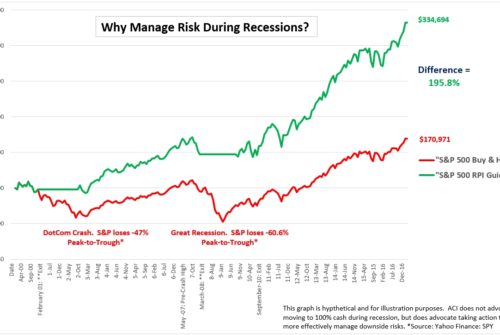
In today’s world, work-life balance is a crucial element of a healthy work environment, particularly in demanding fields such as healthcare. Healthcare roles often involve high stress, long hours and intense working conditions, which can lead to burnout. This makes the role of healthcare managers critical in fostering a balanced environment. By promoting a healthy work-life balance, managers can improve team morale, increase productivity, and reduce turnover. This article delves into the strategies that healthcare managers can employ to ensure their teams maintain a healthy work-life balance.
Understanding work-life balance in healthcare
Work-life balance fundamentally refers to the equilibrium an individual establishes between their work obligations and personal life. Particularly in healthcare, a field known for its high-pressure and strenuous demands, achieving this balance often proves to be a challenging task. The nature of healthcare tasks often requires undivided attention and extended working hours, which presents potential obstacles to maintaining an ideal balance.
Despite these challenges, a healthy work-life balance remains an essential prerequisite for the wellbeing and productivity of healthcare professionals. Empirical evidence continually demonstrates a strong correlation between a balanced personal and professional life and heightened employee wellbeing, enhanced productivity and improved employee retention rates.
The definition of work-life balance in healthcare
In the healthcare realm, work-life balance carries a specific connotation. It involves shaping an environment where healthcare professionals can perform their duties efficiently without their personal wellbeing taking a back seat. It entails crafting work schedules that are manageable and align with the practical capacities of the workforce, where possible. Work-life balance also involves setting up work protocols that do not enforce strenuous work hours, respecting the personal time of employees.
Health managers, such as those who’ve completed a Master’s in Healthcare Administration online through a reputable institution such as University of Ottawa’s Telfer School of Business, can go even further in promoting work-life balance. Programs such as this one combine healthcare and business management, helping professionals leverage data, technology and leadership skills to produce healthy, happy employees. Students have the opportunity to study organizational behavior, including group dynamics, stress management and motivation, preparing them to excel in healthcare management.
However, work-life balance doesn’t strictly equate to partitioning equal hours for professional commitments and personal life. Instead, it is about fostering a working culture that is flexible and empathetic, ensuring that the professional demands do not overshadow personal needs and leisure time. It’s about enabling employees to work optimally during work hours, and then disconnect, allowing them the mental space to rejuvenate and engage in personal pursuits. A well-structured work-life balance strategy empowers employees to give their best at work without jeopardizing their personal lives.
Challenges in maintaining a healthy work-life balance
Even with an understanding of the benefits of work-life balance, its implementation within healthcare fields can be challenging. Factors such as high expectations and extended working hours often act as barriers to achieving this balance, potentially leading to stress and burnout. In addition, the complex nature of healthcare work frequently demands additional hours, further disrupting this equilibrium. Recognizing these challenges forms the crucial first step in developing effective strategies to manage them, fostering a balanced work-life culture that supports the wellbeing and productivity of healthcare professionals.
The role of healthcare managers in promoting work-life balance
Healthcare managers, as leaders, have a significant role in promoting and maintaining work-life balance within their teams. They are responsible for setting the tone for the work environment and creating policies that support a balance between work and personal life. An effective leader understands the importance of work-life balance in promoting team wellbeing and productivity. By taking proactive steps towards fostering a balanced work environment, managers can significantly impact their team’s satisfaction and productivity.
Setting realistic expectations
One of the most significant responsibilities of a healthcare manager is to set clear and attainable expectations for their team. This process involves outlining tasks, milestones and performance standards in a way that respects employees’ personal time. Managers must ensure that these expectations are realistic and that achieving them won’t affect the personal lives of their employees. This balance is essential in promoting a work environment where team members can realize their professional aspirations without sacrificing their personal wellbeing or experiencing unnecessary stress.
Additionally, effective management strategies like regular check-ins can be implemented to monitor progress and workload management. Through these check-ins, managers can gain insight into the difficulties that team members may be facing, allowing them to provide timely and constructive feedback. This type of regular interaction can help managers ensure that their team members are managing their tasks effectively and are not overwhelmed by their workload. By taking these proactive steps, managers can foster a positive work environment that supports both the professional growth and personal wellbeing of their teams.
Fostering a healthy work culture
Healthcare managers have a pivotal role in shaping a work culture that values and supports work-life balance. They have the power to instill a culture that encourages open and honest communication, a practice that can help identify any issues impacting work-life balance early on. Encouraging dialogue about workload, personal commitments and mental wellbeing can help foster a team environment that is empathetic and understanding.
Additionally, a respect for personal time and the acknowledgment of the importance of mental health are crucial components of this culture. Recognizing that employees have lives outside of work and creating an environment that supports this understanding can significantly alleviate work-related stress. By promoting practices that respect personal time, managers can help ensure that their teams have the space they need to rest and rejuvenate, further facilitating a better work-life balance. A supportive and positive work culture not only improves individual wellbeing but can also contribute to better team cohesion and overall productivity.
Strategies for ensuring a healthy work-life balance
Healthcare managers can leverage several strategies to encourage a healthy work-life balance among their team members. These strategies range from flexible work arrangements to supportive company policies that respect and value the personal lives of employees. Some of these strategies include:
Flexible working hours
Implementing flexible working hours is a great strategy for healthcare managers to promote work-life balance. This approach empowers employees by giving them control over their work schedules, thereby aligning professional responsibilities with personal needs. This sense of control over their time not only reduces stress but also boosts job satisfaction. Healthcare managers can institute flextime policies, permitting team members to decide their work start and end times. These policies rest on the premise of task completion rather than strict adherence to a fixed work schedule, which helps to foster a more balanced work environment.
Remote work and telecommuting
The rise of remote work and telecommuting has opened new avenues for healthcare managers to ensure work-life balance. These arrangements provide employees with greater flexibility, help to eliminate commuting stress and often lead to higher productivity. While remote work presents challenges, such as maintaining effective communication, proper management can mitigate these hurdles. Healthcare managers can set clear expectations, define communication norms and leverage technology to ensure robust collaboration. Investing in suitable digital tools can create an environment that is conducive to remote work which significantly contributes to achieving a healthier work-life balance.
Encouraging time off
Encouraging regular breaks and vacations is a critical element of work-life balance and a strategy to avoid burnout. Healthcare managers must actively promote this culture, advocating for their teams to fully utilize their time off. This could involve implementing ‘no-email’ policies during vacations to ensure employees can disconnect from work entirely. Additionally, it’s essential to manage workloads so employees do not return to an overwhelming backlog of tasks. A culture that respects and values personal time can significantly contribute to a more balanced work-life dynamic.
Implementing work-life balance programs
Work-life balance programs can be instrumental in creating a balanced work environment. These programs can include wellness initiatives, stress management seminars and team-building events. By addressing physical and mental health, these initiatives can help manage stress levels and foster camaraderie among team members. It’s the role of the healthcare manager to champion such programs and ensure their team members have access to resources that bolster their wellbeing. By doing so, they can promote a culture that values work-life balance and supports the overall health and productivity of their teams.
Measuring the impact of work-life balance strategies
Once implemented, it’s crucial to assess the effectiveness of work-life balance strategies. This involves gathering feedback, monitoring employee wellbeing, and making necessary adjustments to enhance their effectiveness. Healthcare managers should ensure that their strategies are not just on paper but are making a tangible difference in their teams’ lives. They should actively seek feedback from team members and be prepared to make adjustments as necessary.
Feedback and assessment
Obtaining feedback from employees serves as an invaluable tool for healthcare managers in evaluating the impact and efficacy of work-life balance initiatives. Regular check-ins and feedback sessions provide a platform for employees to voice their thoughts, concerns or suggestions regarding the existing work-life balance strategies. These dialogues can shed light on the effectiveness of the current approaches and reveal areas that need fine-tuning or additional attention. Ongoing feedback mechanisms provide insight that might otherwise go unnoticed, which allows the constant refinement of the implemented strategies.
In addition, maintaining an open line of communication about work-life balance is crucial. Managers should encourage conversations around work-life balance not just during formal feedback sessions, but as part of everyday workplace culture. By supporting these dialogues, managers can demonstrate their commitment to maintaining work-life balance and create an environment of continuous improvement. This consistent communication encourages a proactive approach to addressing work-life balance challenges and reinforces the importance of wellbeing within the team, further solidifying the culture of work-life balance within the organization.
Measuring the success of work-life balance strategies
There are numerous metrics that healthcare managers can leverage to gauge the success of their work-life balance strategies. Quantitative measures such as employee satisfaction scores, turnover rates and productivity levels can serve as clear indicators of the effectiveness of the implemented strategies. High satisfaction scores, lower turnover rates and improved productivity levels often signal successful work-life balance initiatives. In addition, overall team morale, which can be ascertained through observations and team interactions, can also provide vital insights into the team’s wellbeing.
While these metrics provide a robust framework for evaluation, incorporating more subjective indicators can offer a nuanced understanding of the impact of these strategies. Personal feedback from team members, although subjective, can provide insights into individual experiences, perceptions and suggestions for improvement. These qualitative insights, in combination with quantitative data, can provide a holistic view of the effectiveness of work-life balance strategies. Regular assessments using these metrics can guide managers in making necessary adjustments, ensuring that the strategies evolve to better suit the needs and wellbeing of their teams, ultimately driving a more balanced and productive work environment.
Wrapping up
Healthcare managers play a pivotal role in fostering a healthy work-life balance for their team members. Through a combination of strategic planning, supportive policies and proactive leadership, they can create an environment where healthcare professionals can excel without compromising their personal wellbeing. As the nature of work continues to evolve, the importance of maintaining this balance will only grow, making it an imperative aspect of effective team management in the healthcare field.





